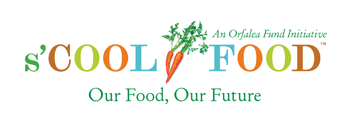Sarah Palin has officially entered the heated conversation surrounding school food reform, bringing her unique perspective to a national issue that has been gaining momentum for years. Known for her outspoken opinions on government policies, Palin’s involvement has sparked both interest and controversy in the ongoing debate over how to improve the quality of food served in schools.
Palin’s stance on school food reform centers around her opposition to federal regulations that set standards for what children can and cannot eat in schools. She has voiced concerns that these regulations represent an overreach of government authority, suggesting that decisions about what kids eat should be left to parents and local communities rather than dictated by Washington.
One of her most publicized moments came when she famously brought cookies to a Pennsylvania school event in what was seen as a symbolic protest against the push for healthier school food standards. By bringing sugary treats to a discussion about nutrition, Palin made it clear that she opposes what she views as government control over students’ diets.
Palin’s entrance into the school food reform conversation highlights a broader cultural debate about personal freedom versus public health. On one side, advocates for school food reform argue that government intervention is necessary to combat rising childhood obesity rates and to ensure that students receive the proper nutrition they need to succeed academically and thrive physically. They point to alarming statistics showing that many children, especially in low-income areas, rely on school meals as a primary source of daily nutrition.
On the other side, figures like Palin argue that such policies infringe on individual choice and parental rights. By opposing school food standards, Palin positions herself as a champion of personal freedom, appealing to those who believe that parents—not the government—should have the final say in what their children eat.
Palin’s involvement in the school food reform debate has brought new attention to the issue, with supporters and critics alike weighing in on her views. For advocates of healthier school meals, her opposition represents a setback to efforts aimed at reducing childhood obesity and improving the overall health of students. They argue that without standards, children will continue to have access to unhealthy options, perpetuating poor eating habits.
Meanwhile, Palin’s supporters see her stance as a necessary defense against what they view as over-regulation. For them, the school food debate is about more than just nutrition—it’s about resisting what they perceive as government intrusion into personal choices and family life.
As the school food reform movement continues to evolve, Palin’s involvement adds an additional layer of complexity to the discussion. With more attention being drawn to the issue, it remains to be seen how her opposition will shape future policies and public perception. Will her resistance inspire other political figures to take a stand, or will it galvanize reform advocates to push harder for healthier standards?
Regardless of where one stands on the debate, Sarah Palin’s entrance into the school food reform arena ensures that the conversation about what children eat—and who gets to decide—will continue to be a prominent topic in public discourse.

